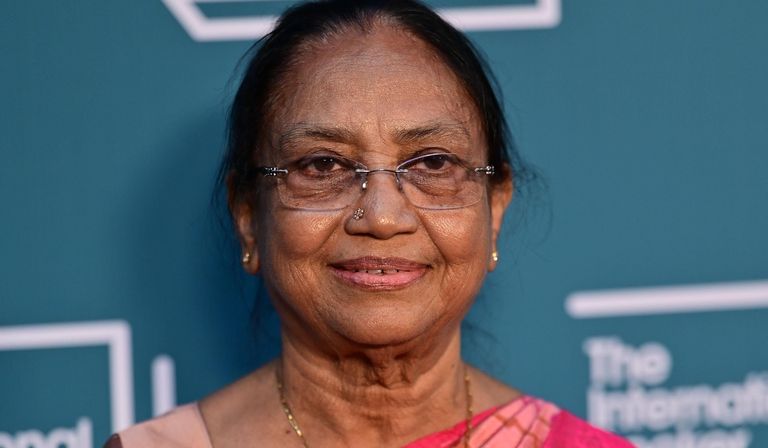In 2000, Banu Mushtaq was subject to a fatwa for saying that it was not Islam itself that prohibited women from entering certain mosques, but the patriarchs of those mosques.
Today the writer, lawyer and social activist from Karnataka, a state in southern India, speaks about the experience in a measured tone: “What these people are practising are not the tenets of religion, but their own man-made religion of patriarchy, which they are imposing on women. I differentiate it. And when I make this differentiation, naturally, there will be a lot of resentment.”
The fatwa lasted for three months before it was overturned. But, during that time, “I faced a lot of hostility,” Mushtaq, now 77, says. “I suffered. There was mental and physical abuse against me and my family.” She received threats and a man tried to attack her with a knife. The stress even led her to develop physical symptoms: “I developed an itching all over my body, an itching for which no treatment could give me relief. When I contacted a psychiatrist, he told me it is due to the abuses that I have imbibed, the self-rejection showing on my skin.”
Perhaps worst of all—for an author of six short-story collections, a novel, poetry and essays, work that is celebrated across India—the experience left her unable to write. “Whenever I started writing, a wave of fear would creep over me.” After two years, she got over it, and the stories began to flow again. “But a sense of self-censorship prevailed.”
It’s quite astonishing, then, that 25 years later, Mushtaq would win the International Booker Prize for Heart Lamp, the English rendition of 12 stories depicting the lives of Muslim and Dalit women in southern India. Translated by Deepa Bhasthi, it is Mushtaq’s first book to appear in English. When the prize was announced in May, the book became the first collection of short stories and the first from the Kannada language to win.
Her intention with Heart Lamp, Mushtaq says, was “to cross the borders”. Because although the characters, places and goings-on in these stories may seem very specific to Karnataka, “there is a universality in it. People understand it because, everywhere, the subjugation of women is the same. The patriarchy, the strategies they adopt and the politics they play—they begin from the home arena itself.”
That’s why so many of the stories in Heart Lamp focus on the domestic: poor Aashraf begs the custodian of the mosque to insist her husband buys medication for their sick child; Mehrun seeks her brothers’ help dealing with her disloyal husband; Razia, a wealthy woman, is so fed up with looking after her children over the holidays that she arranges a mass circumcision for the neighbourhood. Mushtaq’s light prose holds humour, as well as unfiltered cruelty: “Why should he tolerate the words of a woman, burkha-clad, of little value?”, asks one narrator.
Some of the stories date back as far as 1990, but as Narendra Modi’s Hindu-supremacist government continues its reign, women—and Muslim women in particular—are increasingly marginalised, making these tales ever relevant today. “The main intention of this rightist government is to lead the entire system into backwardness,” Mushtaq says.
As a lawyer, Mushtaq has worked on many cases involving lower-caste women that have inspired her fiction. Those stories are “coming in detail in my autobiography”, she teases—once she finds time to finish it. Because while the Booker has won her a whole new readership, the global travel and endless media appearances it has also brought have upended her diary, leaving her little time at her desk.
But it’s a very different reason to why she stopped writing 25 years ago. Today, “I’m writing freely,” Mushtaq says. “That period is over. It was the greatest blow. But now I am free, and I want to say what I want to say, with clarity. I want to go on telling the truth.”












